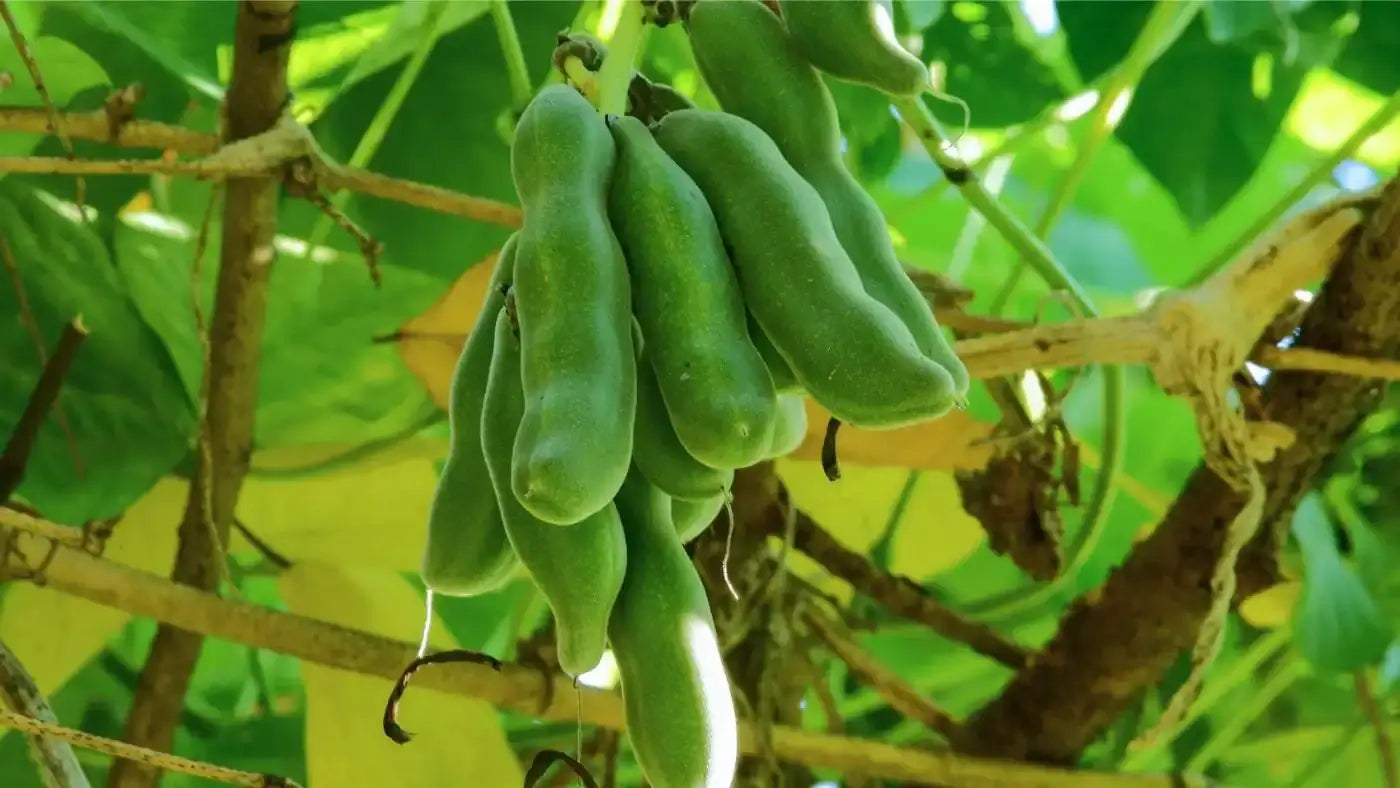Highlights
In recent years, nootropics supplements have received an overwhelming response. Sales for products claiming to enhance cognitive function and regulate stress and mood have skyrocketed in recent years. After all, it’s only human to want to be at your best.
From overpromising and under-delivering to questionable ingredient fillers and lackluster regulation, some of these products have left the public skeptical not knowing which nootropics are the real deal and which are pretenders.
If you’ve heard of Mucuna Pruriens, the velvety super bean known for having natural nootropic properties, you may be wondering if all the exposure is just hype. Thankfully, Mucuna is one plant that lives up to its name. Read on to learn all about the nootropic benefits of the velvet bean.
Meet Mucuna
Mucuna has been called a number of names – kapikacchu and atmagupta, which translates to “the secret self within,” are two of the better-known ones. Recently, Mucuna Pruriens has received quite a bit of positive press for its natural levodopa, or L-Dopa, content that is known to support the nervous system and neurological function.
While Mucuna is finally making its debut in western medicine and the global wellness community, its use as an herbal supplement dates back to Vedic texts written as early as 1500 B.C! They confirm that Mucuna Pruriens has an ancient history of use as a neuro-stimulant, nervous system stress support, and so much more.
For centuries, Ayurvedic practitioners have used Mucuna Pruriens to support a variety of bodily systems and functions, such as mood, stress, brain power, cognitive function, motor skills, skin, sexual health, fertility, and vitality, as well as for the reproductive and digestive systems.
Over 2,000 years later, Mucuna is still being researched and used worldwide for the same reasons. While Mucuna is a versatile herbal supplement capable of adeptly supporting many bodily systems, its strength stems from its remarkable composition and effect on the brain and nervous system.
Modern science and technology have expanded our understanding of how Mucuna Pruriens functions on a microscopic level. We now know the real magic starts with L-dopa.

Dopamine, Levodopa (L-Dopa) & Mucuna
Mucuna is the best-known natural source of L-dopa, an essential amino acid made by our brains as a precursor to dopamine, one of the four happy hormones. Dopamine is essential for healthy neurological function, coordination, motor skills, fluid muscular movement, and so much more.
Levodopa is a rich source of free-radical scavenging antioxidants. Its complex antioxidant activity has made it popular for a variety of health reasons, particularly for those based in the nervous and neurological systems, but also for its reproductive and fertility benefits./p>
It’s important to note that Mucuna doesn’t provide the body with dopamine directly. The L-dopa in Mucuna supports the body’s natural production of dopamine in the brain and nervous system. Unlike dopamine, L-dopa passes through the blood-brain barrier into the central nervous system where it can convert into dopamine. This is where most of Mucuna Pruriens best-known benefits stem from.
Mucuna’s Nootropic Benefits
In many ways, it was Mucuna’s effect on the brain, a neurological and cognitive function that gained the west’s attention. While the implications and uses for this plant are significant by any standard, its value as a nootropic seems to be the application most commonly associated with Mucuna Pruriens.
- Memory
- Brain Power & Health
- Mental Clarity
- Concentration
- Coordination
- Motor Skills & Function
- Focus
- Neuroprotective Properties
- Intellect
- Motivation
These are only a handful of nootropic properties people have credited to Mucuna. –And science seems to back those claims.
Also Read: Gotu Kola: An Ayurvedic Staple For Memory, Stress, & Cognitive Function
How Mucuna Pruriens Works as a Nootropic
Neurotransmitters, dopamine, and norepinephrine are essential for memory, concentration, cognition, focus, and a variety of other mental functions. Loss of these neurotransmitters can lead to brain fog, lowered mood, fatigue, and decreased recollection just to name a few. Needless to say, these “happy hormones” are critical to the quality of our lives. However, dopamine is limited as it can not cross the blood barrier –but L-dopa can.
Mucuna Pruriens contains high concentrations of L-dopa. Once levodopa crosses the blood-brain barrier, the amino acid I-tyrosine synthesizes L-dopa into dopamine, increasing the dopamine in your brain which supports heightened cognitive function.
In 2004, a small random, double-blind study in Germany found that participants who used L-dopa for 5-days experienced increased mental function, vocabulary, retention, memory, as well as learning capacity.
Mucuna Pruriens & Brain Health
Mucuna possesses neuroprotective properties which support overall brain health. It helps protect the brain by regulating cognitive activity and neural functions, encouraging the neurons in the brain to communicate information from one neuron to another.
During normal brain activity, free radicals can develop. External stressors, toxins, and chemicals can encourage their growth. Free radicals cause inflammation which under certain circumstances can kill or damage brain cells.
Mucuna is rich in antioxidants containing high levels of flavonoids, alkaloids, tannic acids, gallic acids, quercetin equivalents, and sitosterol equivalents. These compounds scavenge and eliminate free radicals.




